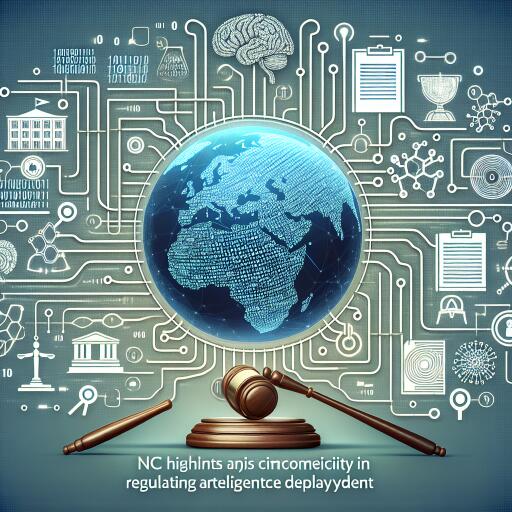NCC Sheds Light on the Regulatory Challenges of AI Deployment
The complexity of devising regulations and policies for artificial intelligence (AI) deployment has been a significant focus for the Nigerian Communications Commission (NCC), especially given the pace at which technology advances. The commission emphasizes the challenge regulatory bodies face in maintaining a delicate balance between mitigating risks and fostering innovation, all while ensuring security and trust within the AI sector.
During the 2024 World Consumer Rights Day, Aminu Maida, the Executive Vice Chairman and Chief Executive Officer of the NCC, highlighted the importance of collaboration among academia, the industry, government, and society. This Quadruple Helix Innovation model promotes the sharing of ideas essential in developing AI systems that are ethical and inclusive.
Maida pointed out the transformative impact of AI across various industries, reshaping how we live and work. The integration of AI into diverse sectors introduces a complex array of legal and regulatory challenges, requiring a thorough examination of existing laws, the creation of new regulations, and ethical considerations to ensure that AI’s societal benefits do not compromise fundamental rights and values.
The NCC aligned with the global trend by adopting “Fair and Responsible Artificial Intelligence (AI) for the Consumer” as the theme for this year’s World Consumer Rights Day, emphasizing the significance of AI and its potential to mimic human intelligence and problem-solving capabilities. Maida noted AI’s presence in our daily lives, driving innovation in healthcare, finance, and transportation, among other fields.
With the power of AI, comes a responsibility to address ethical concerns, such as ensuring AI systems are fair and unbiased and protecting privacy in an age dominated by data-driven AI. Maida discussed the concept of responsible AI, which involves ethical considerations throughout its development, deployment, and use, emphasizing the importance of addressing bias, privacy, transparency, and accountability.
To enhance consumer trust and minimize potential negative effects, Maida called on AI developers to be transparent about the data, algorithms, and models used in AI systems. This transparency is crucial for explaining AI decisions, correcting mistakes, and ensuring fair treatment for all, thereby promoting inclusivity and equality. He also stressed the importance of protecting consumer privacy and holding AI systems accountable.
Maida highlighted the NCC’s efforts in promoting digital services and enhancing communications infrastructure through the successful auction of 5G services, which has spurred the development and deployment of AI systems and services in Nigeria. The NCC has implemented several consumer-centric initiatives to address complaints and inquiries, demonstrating its commitment to consumer protection and the responsible integration of AI.
In closing, Maida reaffirmed the NCC’s dedication to harnessing the potential of AI responsibly, ensuring that innovation continues to thrive while protecting the fundamental rights, values, and dignity of consumers. The ongoing challenge lies in finding the right balance that allows for the advancement of AI technologies without compromising ethical standards and consumer trust.










